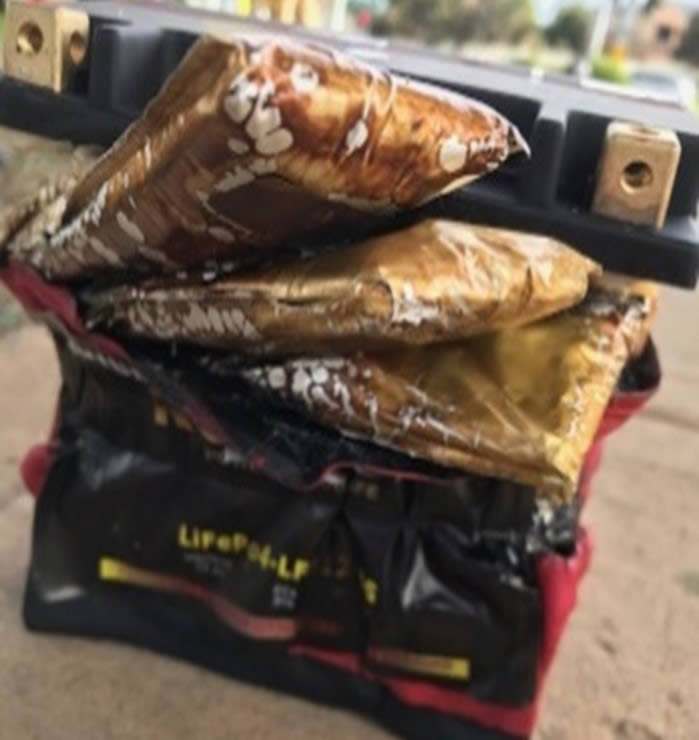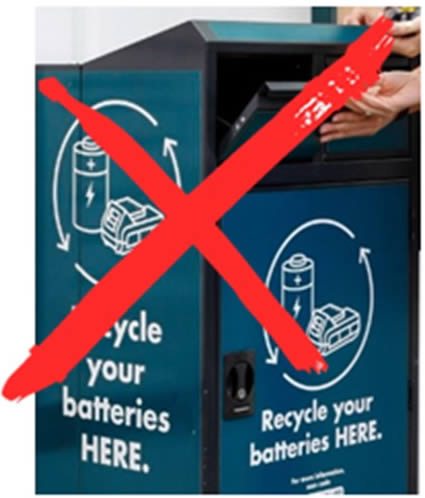What should I do if my device or battery is damaged?

Batteries that show any signs of damage should be disposed of carefully as they carry the risk of becoming involved in a fire. Never throw them in your regular waste or recycling collection bins. Fires are known to occur in garbage trucks and waste facilities due to improper disposal of batteries.
Damaged batteries and battery-powered devices include:
- Batteries and/or devices that have been involved in or exposed to fire
- Overheated batteries that may have been emitting vapours or smoke
- Batteries that show signs of swelling or bulging, leaking, cracks, dents, punctures, or crushing
- Batteries that have had water or liquid ingress or have been submerged in water.
Note that some batteries may contain toxic chemicals, heavy metals and other environmental pollutants that can contaminate water supplies and ecosystems when they are incorrectly disposed of.
DOs
- Be aware of the risks related to damaged batteries, including electric shock, secondary fire risks, and exposure to toxic, corrosive, and flammable vapours and substances
- Wear personal protective clothing and equipment when handling damaged batteries or devices
- Fire- or smoke-damaged batteries should be kept outside in a well-ventilated area. Store at least 3 metres from any structures and/or combustible materials. Small batteries or devices can be placed in a container of water to cool and prevent further ignitions.
Note: It is the responsibility of the site owner or occupier to dispose of fire-affected batteries or battery-powered devices safely once FRNSW has attended an incident and handed over the site. - Small batteries that have had water or liquid ingress or have been submerged in water should be removed from any device or appliance. Dry and wipe down terminals to prevent corrosion and short circuiting.
- Place leaking or damaged (but not overheated or off-gassing) batteries in a clear plastic bag or container and take them to a Community Recycling Centre [external link] or a Household Chemical CleanOut event [external link] for disposal.
DON’Ts

- Never use or charge a damaged battery
- Never dispose of damaged batteries in regular household waste or recycling bins
- Never take damaged batteries to battery recycling collection points or sites
Damaged electric vehicles and battery energy storage systems
Learn what to do with damaged electric vehicles here.
Learn what to do with damaged battery energy storage systems here.